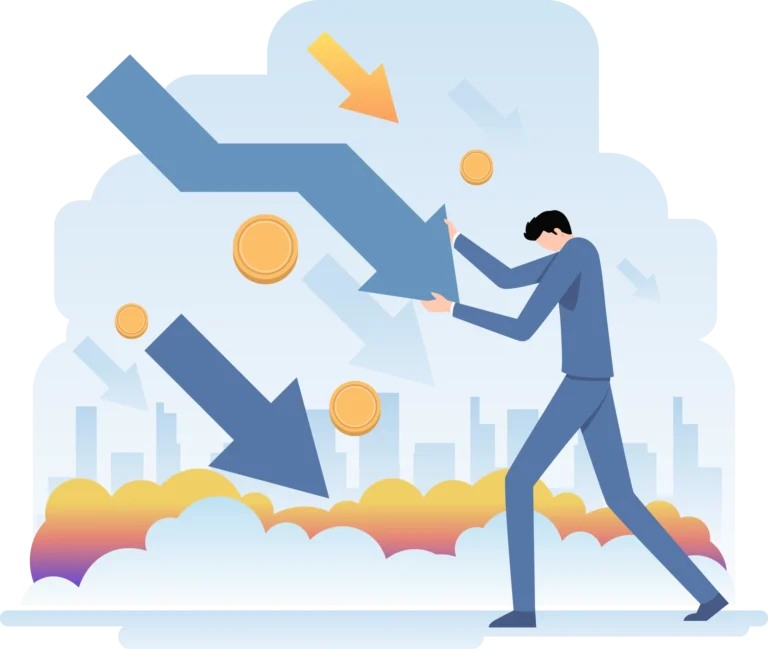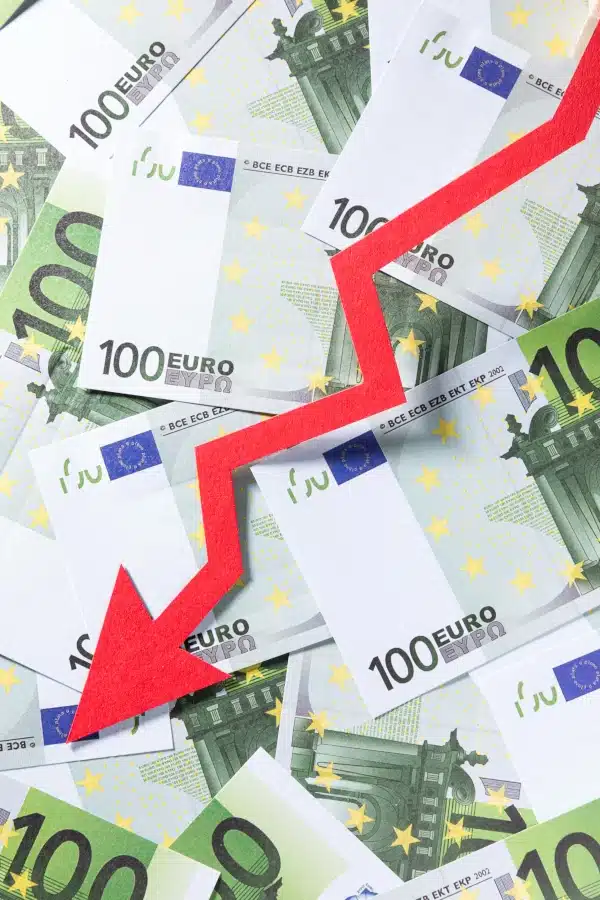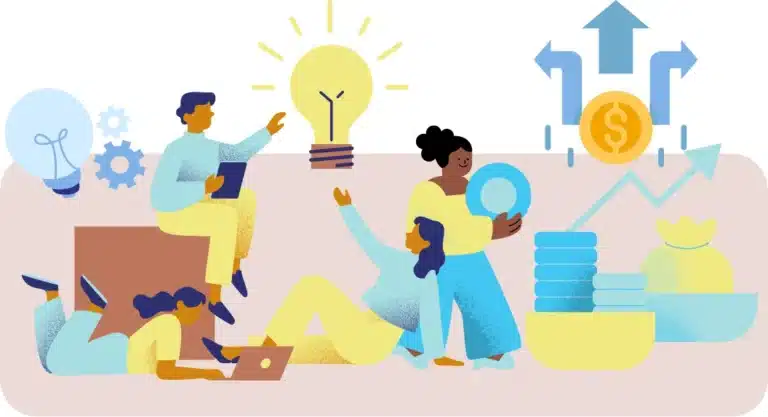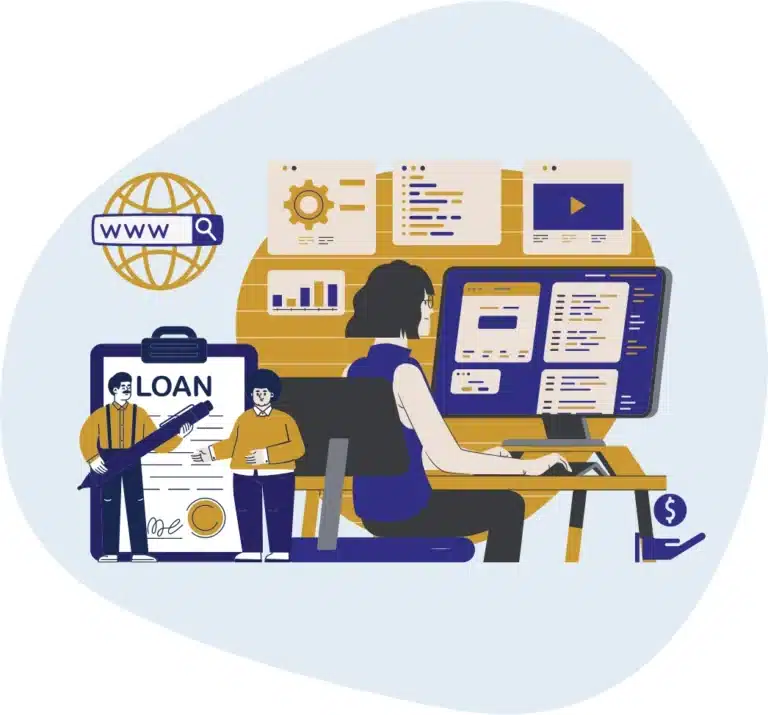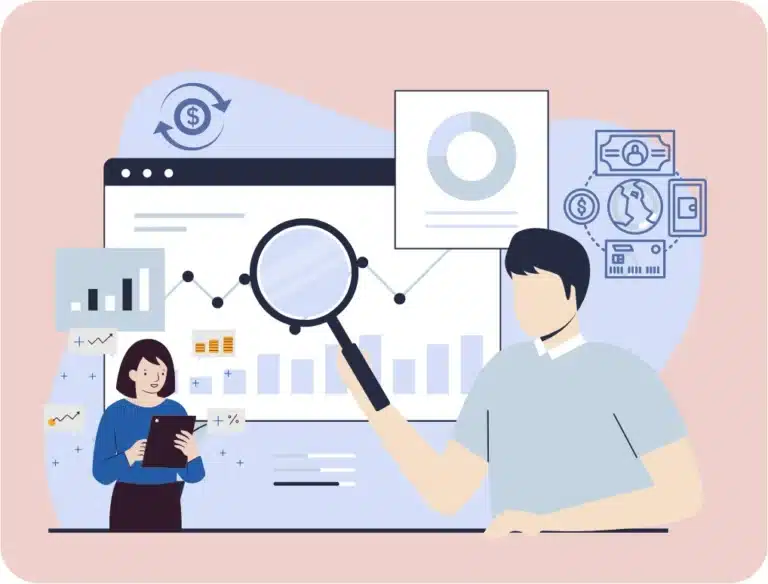The fear of a new economic recession is a very popular topic today, generating a lot of concern in the population. In this blog, we will explain what an economic recession is, how to estimate its impact, and what are the possible causes and consequences that it produces.
1. What is an economic recession?
An economic recession is defined as a prolonged period of decline in the economic activity of a country or region. This contraction is quantified with the Gross Domestic Product (GDP), which is the sum of all goods and services produced in an economy during a given period of time, generally a quarter or a year.
The decline in GDP is evidenced by a contraction in production, employment and consumption of goods and services. These factors can cause a decrease in personal income and income, as well as in both public and private spending.
2. How do you measure an economic recession?
Generally, we can talk about economic recession when the downward trend of GDP is maintained for two consecutive quarters. Therefore, if the decrease in GDP is only observed in one quarter, we will not be able to include it under this term.
However, not all economic recessions are evaluated solely under this criterion. Sometimes economists and governments also look at other indicators, such as the unemployment rate, inflation, and the consumption of goods and services.
3. What are the possible causes of an economic recession?
There are many causes that can trigger an economic downturn, but some of the most common include:
– Financial crises: A financial crisis, such as the one that took place in the US mortgage market in 2008, can trigger an economic recession. In this type of situation, companies and individuals find it difficult to pay their debts, which can trigger a decrease in economic activity.
- Inflation: When the prices of goods and services increase constantly, people may not have enough purchasing power to purchase them, which would also cause a decrease in economic activity.
– Drop in demand for goods and services: If people are not buying products and services, companies may have a hard time selling them. This can lead to a decline in production and employment.
– Increase in interest rates: When banks raise interest rates, it can be harder for people and businesses to get loans. This, in turn, can decrease investment and consumption of goods and services.
4. What are the consequences of an economic recession?
The consequences of an economic downturn are potentially severe and long-lasting. Among the most common consequences are:
- Unemployment: During an economic downturn, many businesses find it difficult to stay afloat, which can lead to layoffs and an increase in the unemployment rate.
– Decrease in income and rent: If companies produce less and people lose their jobs, there may be a decrease in income and rent.
– Reduced consumption of goods and services: When people have less money available, they are forced to reduce their spending on products and services. This can lead to a decrease in the demand for and production of goods and services, which in turn has a negative impact on the economy.
– Decrease in investment: During an economic downturn, many businesses may have difficulty obtaining financing. This would trigger a decrease in investment in new projects, hindering innovation and economic growth in the medium and long term.
It is important to note that these effects are not exhaustive and can vary depending on the severity and duration of the recession. Therefore, it is crucial to take adequate measures to prevent and manage an economic downturn, in order to minimize its impact on society and the economy in general.
5. How can you deal with an economic downturn?
There are a number of policies that can help address an economic downturn. Among the most common measures are:
– Fiscal policies: are those that focus on government spending and taxes. During a recession, the government can increase government spending and cut taxes to stimulate economic activity.
– Monetary policies: focus on the money supply and the interest rate. During a downturn, central banks can lower interest rates to make borrowing more affordable and stimulate investment.
– Employment policies: focus on creating jobs and improving people's quality of life. The government can invest in job training programs and create public jobs.
- Trade policies: Focus on international trade and can help protect domestic workers and businesses. The government can set tariffs and trade barriers to protect domestic companies from foreign competition.
In short, an economic recession is a prolonged period of decline in the economic activity of a nation or region. It can generate serious consequences, such as unemployment, reduced income and income, less investment and savings, decreased quality of life and increased poverty, among others.
However, there are Policies that can contribute to facing an economic recession, such as fiscal, monetary, employment and commercial. It is important to be informed about the current economic situation and understand how measures can be implemented to mitigate the effects of an economic downturn.
